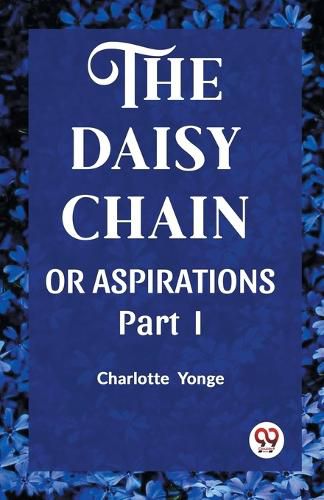Readings Newsletter
Become a Readings Member to make your shopping experience even easier.
Sign in or sign up for free!
You’re not far away from qualifying for FREE standard shipping within Australia
You’ve qualified for FREE standard shipping within Australia
The cart is loading…






This title is printed to order. This book may have been self-published. If so, we cannot guarantee the quality of the content. In the main most books will have gone through the editing process however some may not. We therefore suggest that you be aware of this before ordering this book. If in doubt check either the author or publisher’s details as we are unable to accept any returns unless they are faulty. Please contact us if you have any questions.
"The Daisy Chain: Or Aspirations Part I" by Charlotte M. Yonge is a Victorian novel that intricately weaves together themes of family, morality, and the demanding situations confronted by way of its characters. Set inside the fictional English village of Stoneborough, the tale revolves across the May own family, specifically the virtuous and earnest Ethel, who strives to manual her siblings and peers at the path of righteousness. Yonge, a famend nineteenth-century writer, demonstrates her eager understanding of Victorian society, emphasizing the ethical and social expectancies placed upon people, particularly young women. The novel explores the complexities of familial relationships and the impact of character selections on one's destiny. At the heart of "The Daisy Chain" lies the metaphor of the daisy, symbolizing the interconnected lives and aspirations of the characters. Ethel, along with her aspirations for goodness and virtue, serves as the moral compass in a story wealthy with private trials and triumphs. The novel reflects the author's didactic motive, using the narrative to impart ethical training and values to its readers. Yonge's writing fashion is characterised by way of a mixture of sentimentality and moral seriousness, making "The Daisy Chain" an integral instance of Victorian literature that is still preferred for its exploration of ethical dilemmas and circle of relative's dynamics.
$9.00 standard shipping within Australia
FREE standard shipping within Australia for orders over $100.00
Express & International shipping calculated at checkout
This title is printed to order. This book may have been self-published. If so, we cannot guarantee the quality of the content. In the main most books will have gone through the editing process however some may not. We therefore suggest that you be aware of this before ordering this book. If in doubt check either the author or publisher’s details as we are unable to accept any returns unless they are faulty. Please contact us if you have any questions.
"The Daisy Chain: Or Aspirations Part I" by Charlotte M. Yonge is a Victorian novel that intricately weaves together themes of family, morality, and the demanding situations confronted by way of its characters. Set inside the fictional English village of Stoneborough, the tale revolves across the May own family, specifically the virtuous and earnest Ethel, who strives to manual her siblings and peers at the path of righteousness. Yonge, a famend nineteenth-century writer, demonstrates her eager understanding of Victorian society, emphasizing the ethical and social expectancies placed upon people, particularly young women. The novel explores the complexities of familial relationships and the impact of character selections on one's destiny. At the heart of "The Daisy Chain" lies the metaphor of the daisy, symbolizing the interconnected lives and aspirations of the characters. Ethel, along with her aspirations for goodness and virtue, serves as the moral compass in a story wealthy with private trials and triumphs. The novel reflects the author's didactic motive, using the narrative to impart ethical training and values to its readers. Yonge's writing fashion is characterised by way of a mixture of sentimentality and moral seriousness, making "The Daisy Chain" an integral instance of Victorian literature that is still preferred for its exploration of ethical dilemmas and circle of relative's dynamics.